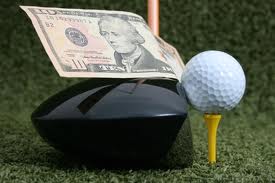The Emerging Trend
NCAA study finds growing gambling habit among golfers
Since the creation of a task force nine years ago to address gambling issues among college athletes, the NCAA has made some progress in curbing potentially dangerous behavior, according to data from its quadrennial survey on gambling behaviors and attitudes.
But several trends revealed in the survey, released Tuesday, are troubling for the NCAA’s enforcement division, with one sport in particular emerging as a major concern: golf.
Click here to read full article
Todd’s Take: I commend the NCAA for establishing a task force to curtail gambling under the guise of protecting student welfare. The numbers they claim to be “staggering” are actually lower than I would have guessed among student athletes. As a former college athlete myself, I admit that I placed the occasional wager from time to time. Did I see it as part of a national epidemic plaguing collegiate sports? Absolutely not.
To group all forms of gambling together from sports to the lottery to playing cards blurs major lines of distinction. The culture around certain sports lends itself more to gambling than others but to say golfers are alone as a “problem” group because they’re surrounded by it is naive. The socioeconomic factors Dan Wolken does a great job of alluding to in the article obviously play a role but letting the NCAA insinuate thats the primary driver is an unfair blanket generalization that didn’t apply in my case.
I find it curious the NCAA has chosen to focus only on sports betting as a problem especially given the study revealed nearly 35% of college athletes purchased lottery tickets. Let me get this straight; buying lottery tickets is ok with no chance to win but trying to give yourself an edge through sports is the ultimate sin? How is this more acceptable as a behavioral norm than betting on sports will never cease to amaze me but then again I’ll also never understand why betting games is only legal in Nevada…I digress. The reality is that the competitive nature of athletes at every level makes gambling an attractive outlet not only for the sake of competition but also as a money maker. I never golfed but there may or may not have been a few bucks exchanged at the end of hockey practices on winning a shootout against certain teammates at the age of 12.
Without sitting on my soapbox and sounding preachy, I’ll never condone betting on one’s own team or anything close to that so I do understand the NCAA’s concern in these situations. I will ask you this; how can we look a college age student in the eye of legal age and tell him or her they can’t bet on the Superbowl nor wager on the horses when major networks publicize the large Derby bet made this past weekend by Tom Brady or the well chronicled sports betting history of Floyd Mayweather? Yes, I know these wagers are made in a different setting but at the same time it still creates a buzz among college age athletes.
My favorite part of the article?
“Only 19.9% of men and 17.7% of women considered participation in a fantasy league with an entry fee and prize money to be gambling. (It is against NCAA rules.)”
Someone might want to contact the NFL and let them know there’s a pretty good chance all their “free leagues” have some pay for play component associated with them.












